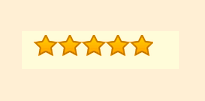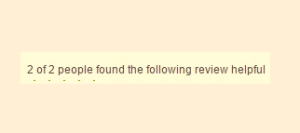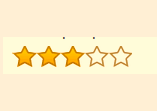The more I learn about Amazon book reviews, the more I have to change my tune. Recently, I claimed that a book review can be as simple as two or three sentences. While that remains true, and a simple review can certainly help the author, it isn’t the most helpful type of review for the potential reader.

In her article “What to Do When Amazon Pulls Book Reviews,” marketing expert Penny Sansevieri reveals some secrets she’s uncovered about why Amazon does, from time to time, make a book review vanish. A book’s set of reviews might be suspect if they can be linked to the author’s friends and family. That doesn’t necessarily mean they’ll pull those reviews, but it’s a factor that might contribute to the ultimate vanishing of those reviews.
Other factors might include reviews in which the reviewer doesn’t go into depth—or at least offer a couple of tidbits—about why they liked the book; multiple reviews coming from the same IP address; a book with only five-star reviews; and Amazon’s own constantly changing algorithms.
Book reviews exist, first and foremost, to help readers determine whether or not they should buy this particular book out of the millions available. As a newly published author, it was easy for me to lose sight of that and focus on the perspective of how reviews can help me.
It’s not about me; it’s not about the author. The idea behind customer reviews is for readers to either encourage or warn other readers about why they may or may not like a book.
The best reviews are those that are helpful to other readers—thus Amazon’s question at the bottom of each customer review, “Was this review helpful to you?”

When someone answers yes or no, those responses are counted and displayed at the top of the review.

Granted, not all review-writers use the opportunity to help others. Some simply praise the book without much explanation. Others might simply spew hatred because they’ve been given the platform to do so. Some people misunderstand the star-rating as a measure of how they personally felt about a particular aspect of the book, rather than as a measure of the author’s writing and story-telling skills.

What does all this mean to you? What does it mean to me? It means we need to try and catch ourselves when we are only considering our own perspective. Like so many other aspects of life, it means not asking ourselves, “How can I use this to my benefit?” but rather, “How can I use this to benefit others?”
With that in mind, I’ll have to revisit my reviews of other authors’ books, and make sure I’m following my own advice. I’m not a prolific review writer, and maybe you aren’t either. But when we do review, the best way we can help out an author is by helping out his or her potential readers.


